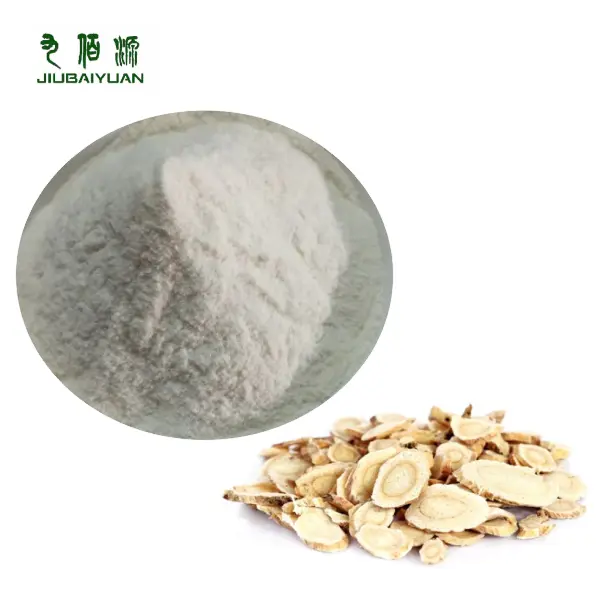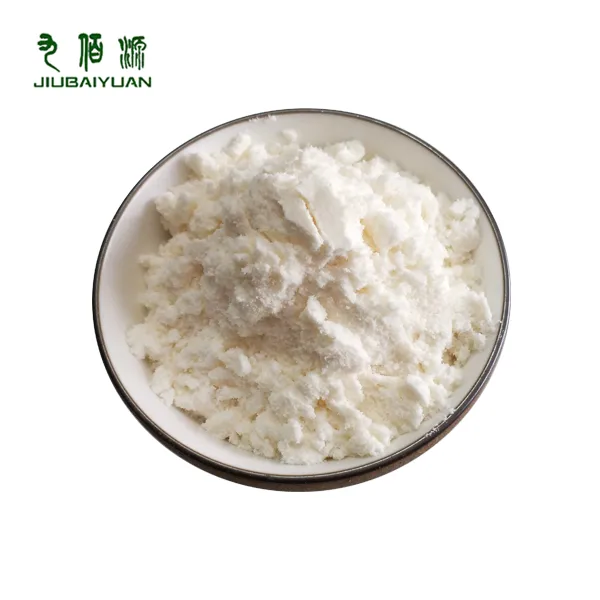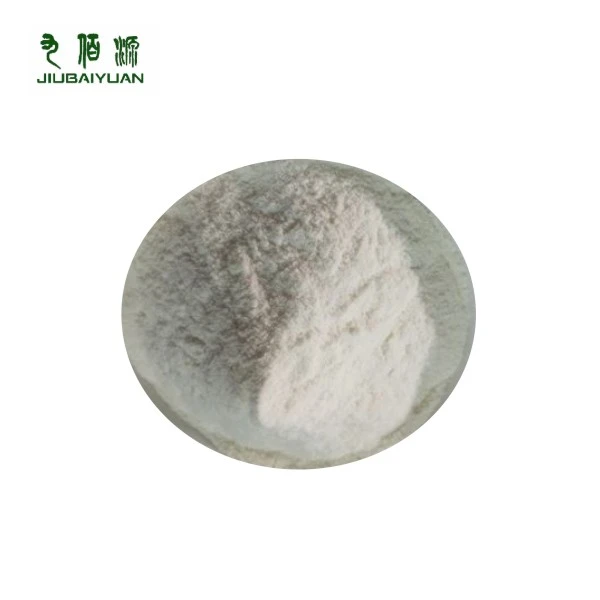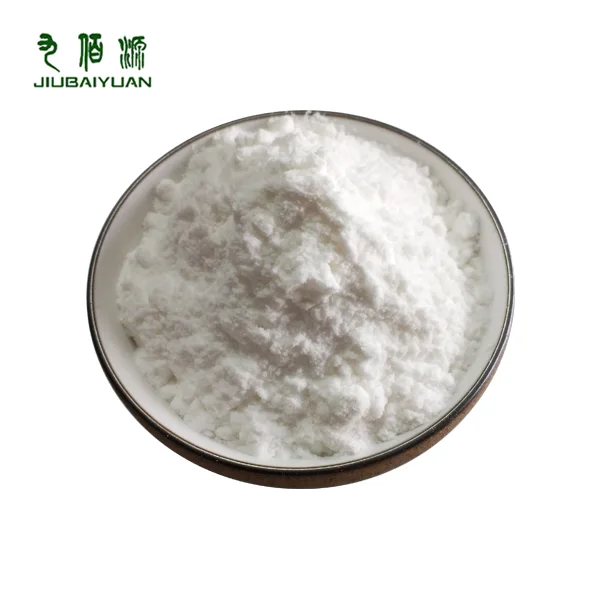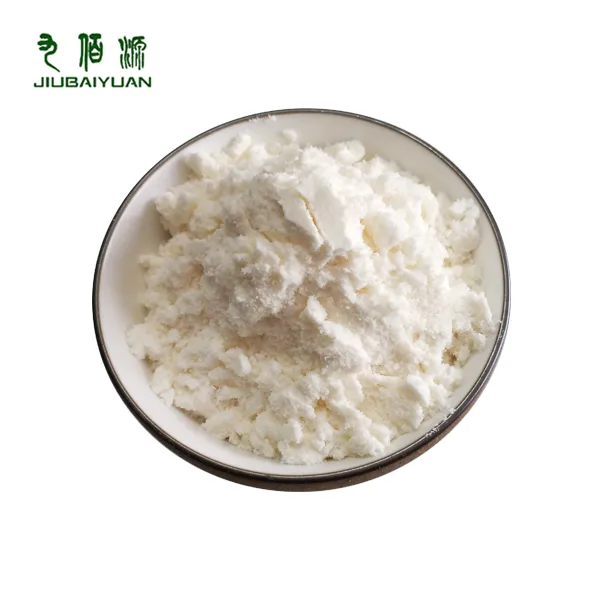What is Geniposide and How Does It Work?

Geniposide is a unique compound belonging to the iridoid glycoside family. It's predominantly extracted from the fruit of Gardenia jasminoides, also known as Cape Jasmine or Zhi Zi in Traditional Chinese Medicine. This small, evergreen shrub has been utilized for centuries in various Asian cultures for its medicinal properties.
The molecular structure of geniposide is characterized by a cyclopentane ring fused to a six-membered oxygen heterocycle. This distinctive structure contributes to its diverse biological activities. When ingested, geniposide undergoes hydrolysis by β-glucosidases in the intestines, transforming into its aglycone form, genipin.
Geniposide exerts its effects through multiple mechanisms:
- Antioxidant Activity: Geniposide acts as a powerful antioxidant, neutralizing harmful free radicals and reducing oxidative stress in cells.
- Anti-inflammatory Properties: It modulates various inflammatory pathways, helping to mitigate chronic inflammation.
- Neuroprotection: Geniposide has demonstrated the ability to protect neurons from damage and promote their survival.
- Metabolic Regulation: This compound influences glucose and lipid metabolism, potentially benefiting individuals with metabolic disorders.
The multifaceted nature of geniposide's actions contributes to its broad spectrum of potential health benefits, making it a subject of intense scientific scrutiny.
Top Health Benefits of Geniposide You Need to Know
The therapeutic potential of geniposide spans a wide range of health conditions. Here are some of the most promising benefits backed by scientific research:
Neuroprotective Effects
Geniposide has shown remarkable neuroprotective properties, potentially beneficial for various neurological disorders:
- Alzheimer's Disease: Studies suggest that geniposide may help reduce the formation of amyloid-β plaques, a hallmark of Alzheimer's disease. It also appears to enhance cognitive function and memory in animal models.
- Parkinson's Disease: Research indicates that geniposide may protect dopaminergic neurons and improve motor function in Parkinson's disease models.
- Stroke: Geniposide has demonstrated the ability to reduce brain damage and improve recovery in experimental stroke models.
Diabetes Management
Geniposide shows promise in managing diabetes and its complications:
- Blood Sugar Control: It may help regulate blood glucose levels by enhancing insulin sensitivity and promoting glucose uptake in cells.
- Pancreatic Function: Studies suggest that geniposide could protect pancreatic β-cells, which are crucial for insulin production.
- Diabetic Complications: Research indicates potential benefits in preventing or mitigating diabetic nephropathy and retinopathy.
Cardiovascular Health
Geniposide may contribute to heart health through various mechanisms:
- Atherosclerosis Prevention: It may help reduce the formation of atherosclerotic plaques by modulating lipid metabolism and reducing inflammation.
- Blood Pressure Regulation: Some studies suggest that geniposide could have antihypertensive effects.
- Cardioprotection: Research indicates potential protective effects against myocardial ischemia-reperfusion injury.
Liver Protection
Geniposide has demonstrated hepatoprotective properties:
- Antifibrotic Effects: It may help prevent liver fibrosis by inhibiting the activation of hepatic stellate cells.
- Antioxidant Action: Geniposide's antioxidant properties could protect liver cells from oxidative damage.
- Anti-inflammatory Effects: Its ability to modulate inflammatory responses may benefit various liver conditions.
Anti-cancer Potential
While research is still in its early stages, geniposide has shown promising anti-cancer properties in preclinical studies:
- Apoptosis Induction: It may promote programmed cell death in certain cancer cell lines.
- Metastasis Inhibition: Some studies suggest that geniposide could help prevent cancer spread.
- Chemosensitization: It may enhance the effectiveness of certain chemotherapy drugs.
Recent Research on Geniposide: Latest Findings and Trends

The scientific community continues to uncover new facets of geniposide's potential. Here are some of the latest research trends and findings:
Neurodegenerative Disorders
Recent studies have delved deeper into geniposide's neuroprotective mechanisms:
- Autophagy Regulation: New research suggests that geniposide may enhance autophagy, a cellular cleaning process that could be beneficial in neurodegenerative disorders.
- Mitochondrial Function: Studies indicate that geniposide might improve mitochondrial function in neurons, potentially slowing the progression of diseases like Alzheimer's and Parkinson's.
- Neuroinflammation: Emerging evidence points to geniposide's ability to modulate neuroinflammatory processes, which play a crucial role in various brain disorders.
Metabolic Disorders
Recent investigations have expanded our understanding of geniposide's metabolic effects:
- Brown Fat Activation: Some studies suggest that geniposide may activate brown adipose tissue, potentially aiding in weight management and metabolic health.
- Gut Microbiome: Emerging research indicates that geniposide might positively influence the gut microbiome, which could have far-reaching effects on metabolism and overall health.
- Lipid Metabolism: New findings suggest that geniposide could help regulate lipid metabolism in the liver, potentially benefiting conditions like non-alcoholic fatty liver disease.
Immune Modulation
Recent studies have shed light on geniposide's immunomodulatory properties:
- Autoimmune Disorders: Emerging research suggests potential benefits in conditions like rheumatoid arthritis and lupus.
- Allergic Responses: Some studies indicate that geniposide might help modulate allergic reactions, potentially benefiting conditions like asthma.
- Innate Immunity: Recent findings point to geniposide's ability to enhance certain aspects of innate immunity, which could have implications for overall health and disease resistance.
Drug Delivery Systems
Innovative research is exploring geniposide's potential in drug delivery:
- Nanoparticle Formulations: Scientists are investigating geniposide-loaded nanoparticles for enhanced bioavailability and targeted delivery.
- Combination Therapies: Studies are examining the synergistic effects of geniposide with other bioactive compounds and drugs.
- Topical Applications: Research is ongoing into the potential of geniposide in topical formulations for skin health and wound healing.
Epigenetic Modulation
Emerging research is uncovering geniposide's potential epigenetic effects:
- DNA Methylation: Some studies suggest that geniposide might influence DNA methylation patterns, potentially affecting gene expression.
- Histone Modification: Research indicates that geniposide could modulate histone modifications, another key epigenetic mechanism.
- microRNA Regulation: Preliminary studies hint at geniposide's ability to influence microRNA expression, which could have wide-ranging effects on cellular processes.
As research on geniposide continues to evolve, we can anticipate even more exciting discoveries about this remarkable compound. Its multifaceted nature and broad spectrum of potential benefits make it a promising candidate for various therapeutic applications.
While the results of these studies are encouraging, it's important to note that much of the research is still in preclinical stages. Further clinical trials are needed to fully understand geniposide's effects in humans and to determine optimal dosages and potential side effects.
As we continue to unlock the secrets of nature's pharmacy, compounds like geniposide remind us of the vast potential that lies within the plant kingdom. With ongoing research and technological advancements, we may soon see geniposide playing a more prominent role in health and wellness strategies.
Call to Action
Are you intrigued by the potential of geniposide and other natural compounds? At Xi'an Jiubaiyuan Biotechnology Co., Ltd., we specialize in high-quality plant extracts, including geniposide. Whether you're a researcher, a product developer, or a health enthusiast, we're here to support your needs. For more information about our geniposide products or any other botanical extracts, please don't hesitate to reach out to us at mark@jiubaiyuanbiotech.com. Let's explore the healing power of nature together!


